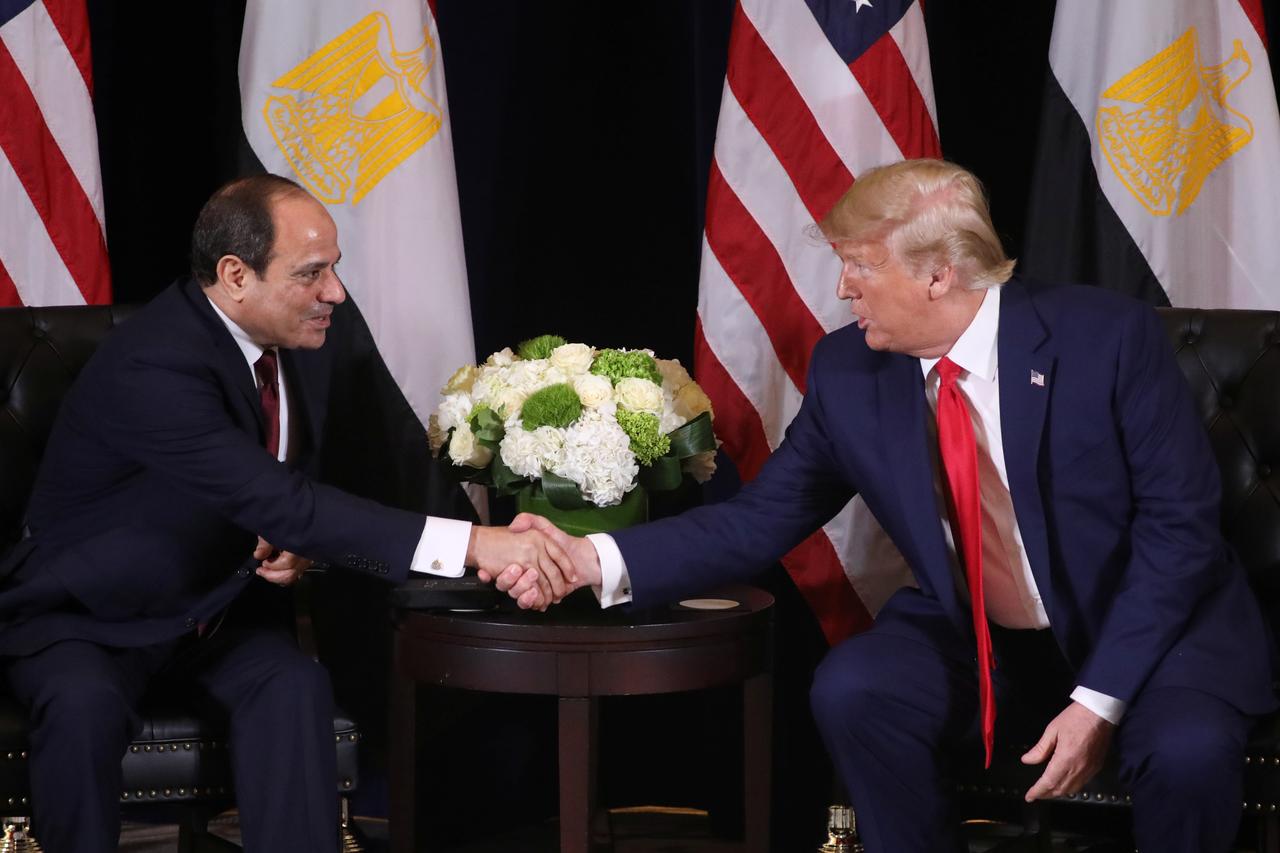
Egyptian, U.S. leaders hold phone talks on Ethiopia Nile dam, Libya crisis

Sisi and Trump exchanged views on the current situation of the Grand Ethiopian Renaissance Dam (GERD) and the relevant negotiations between Egypt, Ethiopia and Sudan, said Egyptian presidential spokesman Bassam Rady in a statement.
Over the past few years, tripartite talks on the rules of filling and operating Ethiopia’s grand hydropower dam have been fruitless, including those hosted by Washington, amid Egyptian concerns that the GERD construction would affect Egypt’s annual share of Nile water.
Earlier on Wednesday, Egypt called on Ethiopia not to take any unilateral action with regards to filling the dam until a tripartite agreement is reached.
The Egyptian and U.S. leaders also discussed the Libyan crisis in the light of the recently proposed Egyptian initiative for a peaceful settlement in the war-torn country.
Dubbed Cairo Declaration, the Egyptian plan seeks to implement a cease-fire between Libyan warring parties, disbanding militias, handing over their arms, pulling out foreign forces, electing a ruling presidential council which represents all Libyans, and drafting a constitutional declaration to regulate later elections.
“Trump welcomed the Egyptian efforts to achieve a political settlement to the crisis and end the violence by supporting cease-fire in Libya and activating the will of the Libyan people to achieve security and stability in their country,” said the Egyptian presidential spokesman.
Libya has been locked in a civil war since the ouster and killing of former leader Muammar Gaddafi in 2011.






